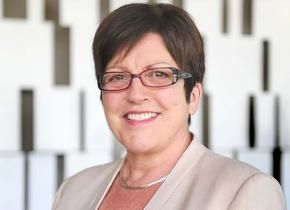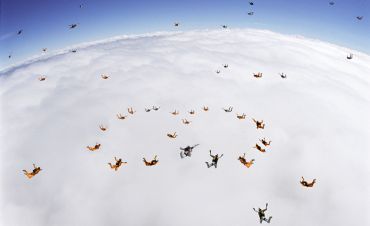
Dame Pauline, the theme for the Alliance's 2015 conference is "Towards 2020 - What will your co-operative look like?". Could you tell us how this theme came about, please?
PG: Society and trade are evolving at increasing speed and the Alliance is a forward looking organisation. We protect the co-operative model but also build it for the future using the Blueprint for a Co-operative Decade. Our 2015 global conference is the platform for co-operators to stay on top of developments and take best practices home. Co-ops need to continue to affirm and communicate their leadership as socially embedded and sustainable enterprises. Co-operative sustainability is one of the key topics the conference will look into, as well as participation, identity, access to capital and legal frameworks.
Globalization continues. Everybody has internet nowadays but decisions are more and more made at global forums at which the voice of big business has been predominant. The Alliance has made a conscious decision to become an active partner of forums like the G20. We want to help bring greater transparency, and make them more relevant and accessible for co-operators. The 2015 conference is an opportunity to show how our global influence affects sectors and co-operators at a local level.
What can co-operatives do to achieve greater sustainability in all that they do?
PG: Whatever sustainability standards stock enterprises try to put in place, they will always remain bound by the whims of shareholders and stock exchanges. Co-operatives on the other hand, are recognised by governments as the most realistic, efficient and authentic sustainable enterprise model.
We need to make sure that this recognition is not eroded or overlooked and we need to remain ahead of the game. We have to perform our own quality control and put improvements in place so we stay attractive and are perceived as leaders in sustainability. Climate and environment are part of that, but equality and inclusiveness are too. We want for instance to be a platform for participation of women and youth. Farmer smallholders are another group we need to continue to include. Co-operatives play a part in feeding the world. It’s a great responsibility.Our global conference is built on the pillars of the Blueprint. It’s an essential step in the implementation of the vision to be leading sustainable businesses towards 2020 and beyond. We need to look back on 2012 - 2015, analyse how far we have come and plan ahead towards 2020.
One of the topics that will be discussed at the Alliance’s Global Conference in Antalya, Turkey, is "co-operative identity in the digital era". How can co-operatives make the most of the digital era to assert their identity?
PG: Of all the existing models, the co-operative model is both the most open-source and it is the most efficient. The co-operative model provides a stable platform for a healthy, thriving and equal society. Independent, yet available and open to all. You could call us the “Drupal of enterprise models”. Our .co-operative marque and .coop domain are unique. The co-operative marque gives us a special presence in all communication fora, and a .coop domain name inspires trust on the net. With innovative marketing and advertising we now have these precious instrument and requests to use them are pouring in.
The sharing economy as Jeremy Rifkin puts it, is largely driven by digital platforms for managing the sharing. It is also a place where co-operatives are in pole position, because they offer an ownership model to manage what is shared. This, open source and other evolutions are why we are giving digital a permanent spot in our conferences.
Our 2015 conference will look at how to extend and expand online business using the co-operative identity of which the marque is a cornerstone. The conference will also look at digital instruments and platforms that are compatible with our identity and help us reach our goal – perpetuate and grow the co-operative model.
Another key topic at the Global Conference Towards 2020 is Global Challenges, Global Solutions. Climate change and energy seem to be part of that. We’re seeing flooding like recently in the Philippines or blackout concerns like in Europe. Water and electricity companies are among the oldest co-ops. Will co-ops be a state’s preferred partner for addressing climate and energy challenges towards 2020?
PG: Our recognition by the B20 as a suitable platform for infrastructure investment certainly helps with this ambition. For this however, co-operatives do need a supportive legal framework. “Doing co-operative business” will be a key report at the 2015 conference. It aims to compare and assess the 'co-operative friendliness' of each national business environment. It will look at different national legal frameworks and identify indicators of a welcoming climate for co-operatives. To be launched at our 2015 conference it will provide our members with concrete recommendations to put on the table when they talk to governments.
The International Co-operative Alliance's 2015 global conference and general assembly are held from 10-13 November in Anatalya, Turkey, and are hosted by the National Cooperative Union of Turkey. Visit the conference website: www.antalya2015.coop.





